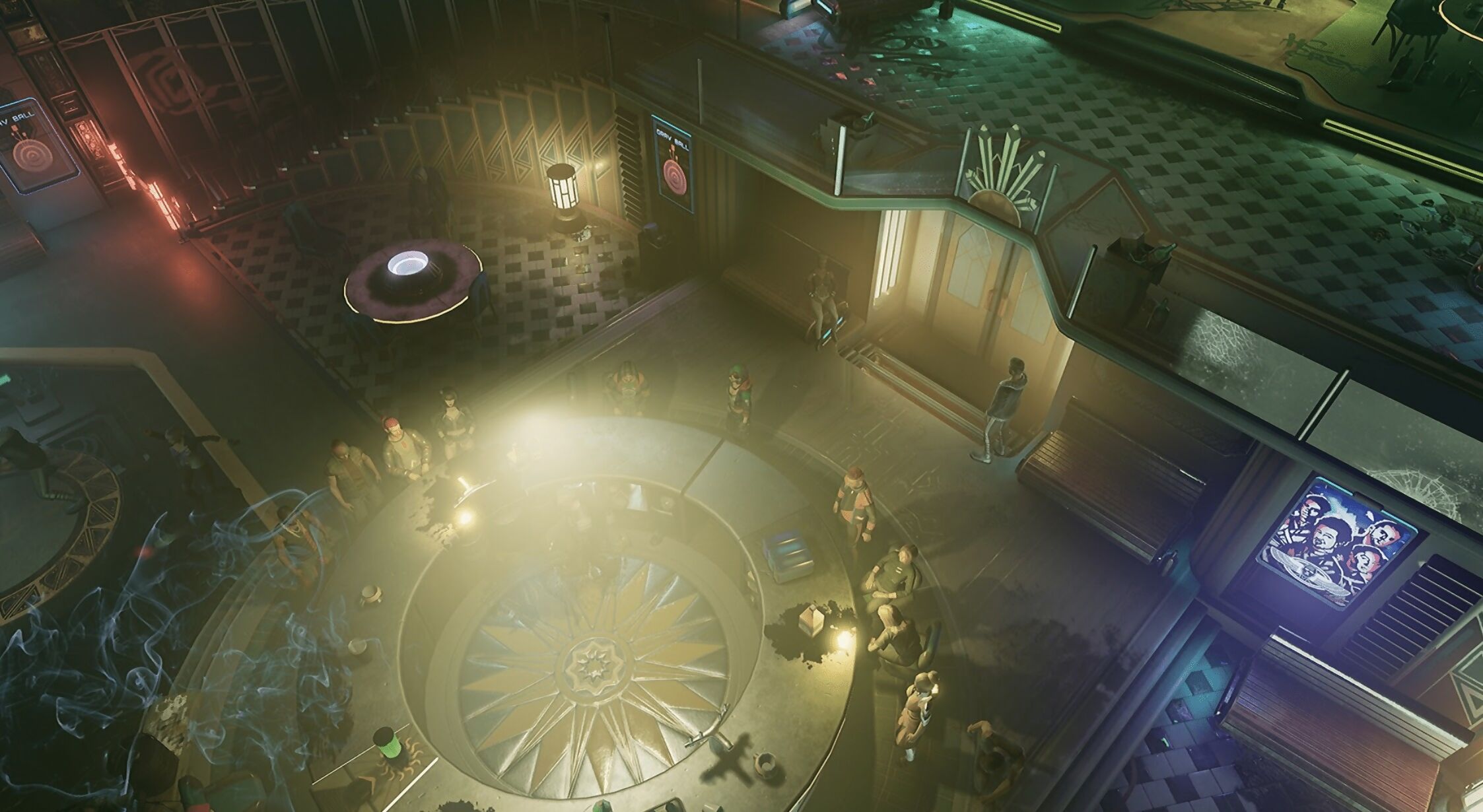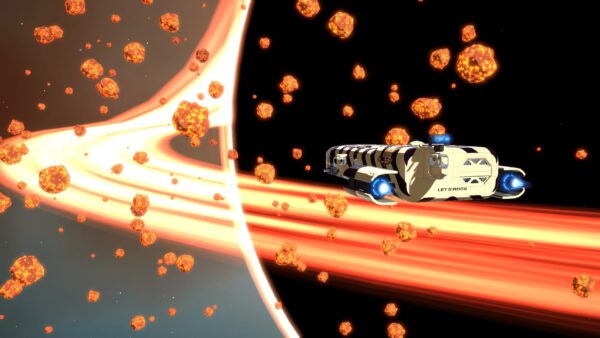
It’s a huge undertaking to make a game that reacts to the player’s actions – that is, as Gamedec’s developer calls it, ‘adaptive’. More so when the main thrust of the title is its story. But that hasn’t stopped Anshar Studios, the Polish team behind the upcoming cyberpunk-themed detective RPG – this aims to be a game where the player’s input can be right, it can be wrong, but it’s always one thing: accepted. How far this translates to getting things entirely wrong in a murder investigation, for example, isn’t completely clear from Gamedec’s early demo released this year.
But there was enough going on in this stylish world of tomorrow to pursue further investigation and find out just what is going into the magic recipe of role-playing mechanics, story focus, and a lack of combat.
The initial idea for Gamedec came from the author of the book series, Marcin Sergiusz Przybyłek, who put the call out for developers who’d be willing to help bring the project to virtual life. “The goals were simple,” explains Mateusz Greloch, community manager at Anshar Studios. “We wanted to ditch the combat and focus on a branching story, detective work, extracting as much data from the environment and interrogations as possible, and then proceeding with a deduction that allows progression in the case.” From the beginning, it seems this was a game being made with patience and thoroughness in mind, rewarding players who take their time to pore over things – almost in a pixel-hunting, point-and-click adventure game style, but far less irritating.

Screenshot 2021-06-15 at 14.25.09
Simultaneously, the aim of the developer has been to make a game that keeps you on your toes – with its adaptive nature, Anshar wants players to question their choices. “Was the decision I made good? Did I support the right part of the conflict? What will be the consequences [of my actions] on this case, and how will it affect my playthrough?” Greloch says. “These are the questions we’re hoping you ask while playing Gamedec. We don’t recommend rushing the game to see the end credits, but we allow players to choose how much of the story they want to unravel before going forward.”
While the desire to make a game that encouraged patience and adapted to your approach was there from the start of development of the RPG, the actual genre of Gamedec wasn’t the same from day one – an adventure game was discussed, or even a collectable card game, though “that didn’t feel right”, according to Greloch. But once the move to a classic computer RPG style was adopted, isometric view and all, development remained focused on that style, and the goals of making a responsive title focused on the player’s input.

Geoffrey Haggis is a wonderful name and more people should be called it
Of course, being open to a player’s individual whims is an approach that makes for… complex situations, let’s say. And it’s something the team has been working hard on, with the direct input of Gamedec’s original author, for a while now. “[Marcin] has fantastic ideas on what and how to introduce to his Gamedec-verse,” says Greloch. “Our designers sit down with him and think about the subplot, NPCs, twists, and interactions. We try to play every case as a pen-and-paper scenario, with different players to emulate the ideas for interactions and dialogue, and then try to implement them into the actual gameplay. This way, our characters feel more human and present various behaviours to cover most communication approaches.
“What is the most challenging is the branching system,” he continues. “It is so extensive that testing all possible options takes tens, if not hundreds, of hours. Branching is complicated, and it is a challenge to maintain such a system throughout the game because the decisions are supposed to influence the whole game, not just another case – that’s why there’s quite a big emphasis on these branches, their refinement, and overall perception.”

Avoiding combat, Gamedec instead relies on dialogue and investigation for the player’s kicks
The big aim, then, is to make a game that progresses regardless of what you do – of what you choose. A game that reacts and responds, that adapts accordingly and shows players – regardless of their experience, age, moral compass, or whatever else – the consequences of their decisions. “Is Gamedec challenging?” Greloch asks. “Only if you want it to be. You can rush the case, make a lousy deduction, and still finish the case. If you spend more time looking for clues, and focus on interrogating, the game will reward you with a more complicated plot and more complex deduction dilemmas. Suddenly, people turn out to be someone different from what you expected, and you must become a real detective to figure out who’s lying and which of the parties is better to be partnered with.”
With such ambition on show, it’s going to be interesting to see if Anshar can pull it all off. Gamedec certainly looks the part, oozing the sort of cyberpunk-ish atmosphere that can be so alluring. Starting out as just a couple of people working on an indie passion project, development is now being handled by around 25 people – designers, artists, writers, and audio designers, with more still being hired even as the announced 16 September release date approaches. “Managing a team of that size is not an easy task,” Greloch says. “We have an experienced team of producers and a clear road map planned, so we are ready for whatever the future brings. We have learned a lot along the way, and let me say, that was an incredible journey with tons of knowledge picked up.
Genre: RPG | Format: PC/Switch | Developer: Anshar Studios | Release: 16 September | Social: @GamedecTheGame





